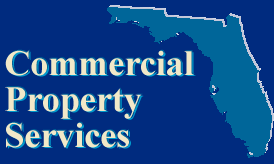|
What
Taxpayers Should Know
It
is the inalienable right of every taxpayer to challenge ad
valorem assessments, and to obtain relief if overtaxed. Every
state has a system for this purpose, as does Canada and England.
Each
state also has its own laws, court decisions, and regulations
affecting opinions of value, the types of assets taxed as
"property". There are significant differences in
practical applications of these taxes.
Red
Flag
- The Florida Auditor General has reported, for fifteen years
to date, local tax rolls cannot be verified. The reports detail
lack of uniformity, lack of objective, current, complete Guidelines,
lack of appropriate statistical analysis, lack of documentation,
and other deficiencies in the state's Department of Revenue's
supervision of local assessing practices. A statewide Grand
Jury Presentment, in 1989/1990, itemized similar concerns.
Of twelve AG recommendations made to DOR in 2000, to which
DOR reported "we concur" on all points, two specifically
identify appropriate Guidelines {key to solving several problems)
which are not being followed by this state agency.
In
Florida, the "just value" of Real Property - land,
improvements (including buildings), and Tangible Personal
Property - is reassessed for taxable purposes as of each January
1. Computer assisted mass appraisal (CAMA) techniques are
applied, in many counties. However, "mass appraisal"
really applies statistical analysis rather than traditional
appraisal methods, often includes "margins or error,"
and does not necessarily result in "just value"..
And, venues in Florida typically do not use the same CAMA
software programs, so their data varies.
At
the end of December, business owners receive Tangible Personal
Property Returns to file before April 1st. Most typically
ask their accountants to fill out the forms, then sign and
send them in. The filing of Returns is Step One. From those
forms, the counties will apply appraisal techniques and methods
to the hard assets.
Business
taxpayers should realize there are major differences between
accounting and appraisal approaches to tangible property valuation.
It is critical to use appraisal methods for tangible personal
property. Even the "cost approach" differs between
the two professions. The "market approach" has been
found, in legal decisions, to be superior. Tax rates of tangible
property values are the same as real estate, once set cannot
be changed. However, the taxable valuations of tangible personal
property may be appealed, under VAB rules and regulations.
In
Florida state law, there are "eight criteria" (F.S.
193.011) which must be "properly considered" (F.S.
194.301) to determine "just value" of real and tangible
property. The foundation of successful appeals is the application
of these criteria in the context of valuation methods, with
degrees of weight given to the preponderance of clear and
convincing evidence.
|

